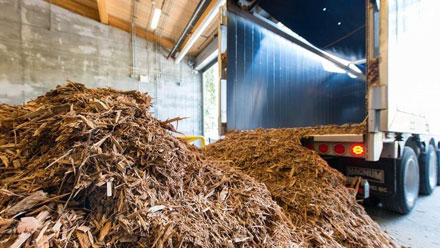
Fonterra New Zealand will reduce its reliance on coal and so provide the stimulus for increased biomass fuel supply, the company has announced that it will stop installing new coal boilers or increasing capacity to burn coal immediately. Source: Timberbiz
“The increased demand for renewable fuels for Fonterra plant, adds to the demand for biomass fuel already announced by the Otago and Christchurch hospitals and DB breweries,” Brian Cox, Executive Officer of the Bioenergy Association said.
“This will now encourage biomass fuel suppliers to increase their capacity for sourcing and delivering biomass fuel.
“There are adequate quantities of wood chip and wood pellets that can be delivered at short notice and potential for other short rotation fuels such as from miscanthus.
“There is also the potential to source pellet fuel from agricultural crop residues such as straw, and from paper and cardboard.”
Mr Cox said that transitioning from use of coal and gas for process heat needs to be done in an orderly manner so that fuel suppliers have time to grow their capacity.
These signals from Fonterra will encourage forest owners to see the opportunity for collection and sale of forest harvest residues now that they are having difficulties in selling logs to China.
“Fonterra also has the option of transitioning from coal by co-firing biomass fuel in its existing coal boilers. Pellet fuel is particularly good,” Mr Cox said.
“This means that they can continue to use equipment which still has many years of servicable life without large capital investment.
“The Fonterra announcement dovetails with the proposal from Government to recognise in the Emissions Trading Scheme the greenhouse emission reduction opportunities that farmers have from their operations.”
Farmers have opportunities through producing biomass fuel from shelterbelts, woodlots and use of low productive land to be fuel suppliers to Fonterra. And Fonterra is well placed to partner with their farmer shareholders for the production of biomass fuel.
The Bioenergy Association has identified that 1.8Mt CO2-e of greenhouse gases could be reduced if coal and gas was replaced by biomass fuel for process heat.





